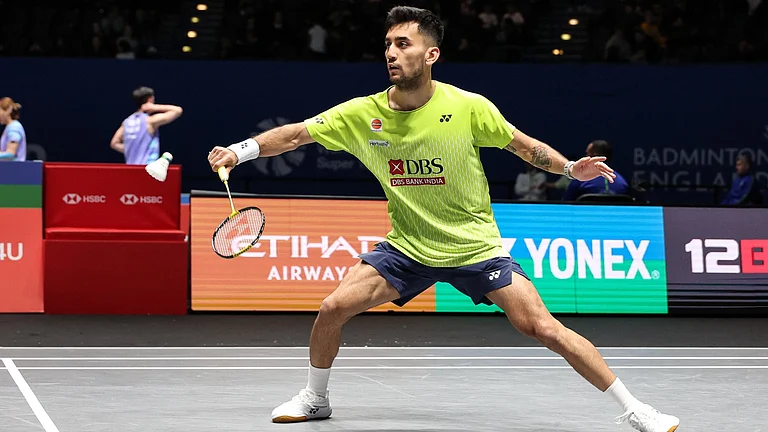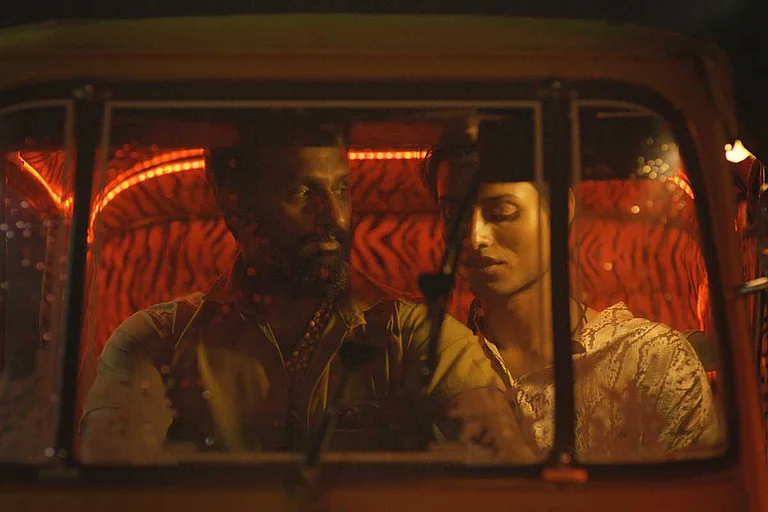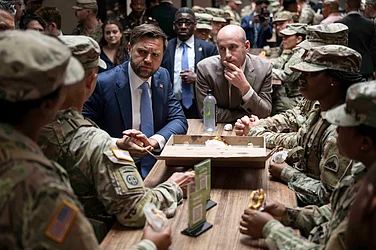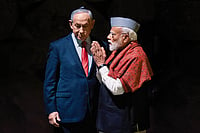It is not surprising that it is South Africa, and not any of Palestine’s Arab neighbours that has taken Israel to the International Court of Justice (IC) at The Hague, on charges of genocide against the people of Gaza. The performance of the South African team while putting up the case before the ICJ yesterday was both professional and passionate. Palestinians themselves could not have done a better job in presenting their case. "South Africa has shown moral courage and a creditable sense of responsibility by taking the matter up with the ICJ,’’ says K.P. Fabian, a retired Indian diplomat.
South Africa understands oppression like no other people, with its long history of struggle against apartheid, a system that institutionalised segregation and kept the original Black inhabitants enslaved and confined to the ghettoes, while 20 per cent of the descendants of former White colonisers controlled the levers of political and economic power. Living under successive apartheid regimes has made the citizens of South Africa particularly sensitive to the plight of oppressed people.
"South Africa has been a long-term supporter of Palestine, in line with its anti-apartheid struggle. Its antipathy to Israel has been consistent to the extent that it led several African countries in seeking the exclusion of Israel from being an observer at the African Union," says retired former ambassador to Ethiopia, African Union, Gurjit Sing. "South Africa often sees the Palestinian struggle as being akin to its struggle against apartheid and therefore puts its weight behind Palestine even though it sometimes appears isolated,’’ he adds.
The US, UK, Germany, and several Western nations are die-hard supporters of Israel and will back Prime Minister Benjamin Netanyahu’s government in the UN Security Council when it comes to implementation of the diktats of the ICJ.
Nelson Mandela, the anti-apartheid leader of South Africa who was imprisoned for over 22 years in Robben Island prison by the racist regime, had a special place in his heart for the Palestinian struggle. During Palestinian leader Yasser Arafat’s visit to South Africa in 1998, Mandela told the PLO leader, "Your name is revered by millions in South Africa…You come as a leader of a people who have shared with us the experience of struggle for justice.”
That legacy has endured. South Africa has been one of the most vocal critics of Israel’s war on Gaza. From the very beginning of Israel’s assault on Gaza following the October 7 attack by Hamas, South Africa has raised its voice against Israel’s actions in Gaza. As early as November, President Ramaphosa’s government recalled its ambassador from Israel. Protest marches in support of Palestine were held in Cape Town as in many other cities of the world. AP quoted Mandela’s grandson, Mandla Mandela while taking part in a protest march in Cape Town, “We have stood with the Palestinians and we will continue to stand with our Palestinian brothers and sisters”.
The South African government’s decision to take Israel to the ICJ was also pushed by the influential Nelson Mandela Foundation, which urged President Cyril Ramaphosa to do more than issue statements.
The case presented by South Africa focused not just on the current plight of the people of Gaza but gave a broad view of the persistent oppression of Palestinians for the last 75 years and more. Time magazine quoted a South African diplomat Naledi Pandor in July 2022: "For many South Africans, the narrative of the Palestinian struggle does evoke experiences of our history of racial segregation and oppression.’’
Realising that the ICJ decision on Israel could take time, South Africa has asked for a provisional order or an interim judgment while the case is being heard. South Africa has called for a halt to the fighting, allowing humanitarian aid to flow and provide relief to the besieged citizens of the Gaza Strip.
It is not clear what the verdict of the ICJ on a provisional ruling will be. As the ICJ operates within the UN system and has no power to implement any decision without the approval of the UN Security Council, power politics will come into play. In this case, the US, as a permanent member of the United Nations Security Council has the right to veto any verdict that Israel does not approve.
In 2022, when Gambia took Myanmar to the ICJ and called for a halt to the killings of Rohingyas, it could not be implemented. The Myanmar junta refused to abide by the decision of the ICJ. As Human Rights Watch observed, "Myanmar is legally bound to comply with the order. However, Human Rights Watch and other groups have continued to document grave abuses against the 600,000 Rohingya remaining in Myanmar, contravening the provisional measures. The severe restrictions imposed on the Rohingya by the Myanmar authorities amount to crimes against humanity of persecution, apartheid, and severe deprivation of liberty. Since the February 2021 coup, the military junta has placed even greater movement restrictions and harsher punishments on Rohingya for attempting to leave Rakhine State.’’
So, a verdict by the ICJ favouring South Africa will at best be a moral victory, but political considerations will ensure that Israel can ignore the judgement with impunity.























